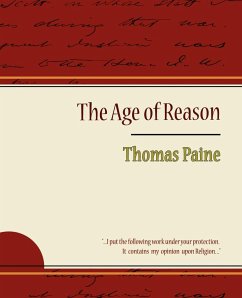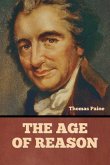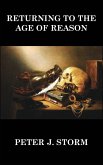I put the following work under your protection. It contains my opinion upon Religion. You will do me the justice to remember, that I have always strenuously supported the Right of every man to his opinion, however different that opinion might be to mine. He who denies to another this right, makes a slave of himself to his present opinion, because he precludes himself the right of changing it. The most formidable weapon against errors of every kind is Reason. I have never used any other, and I trust I never shall. Your affectionate friend and fellow citizen, Thomas Paine.
Bitte wählen Sie Ihr Anliegen aus.
Rechnungen
Retourenschein anfordern
Bestellstatus
Storno









